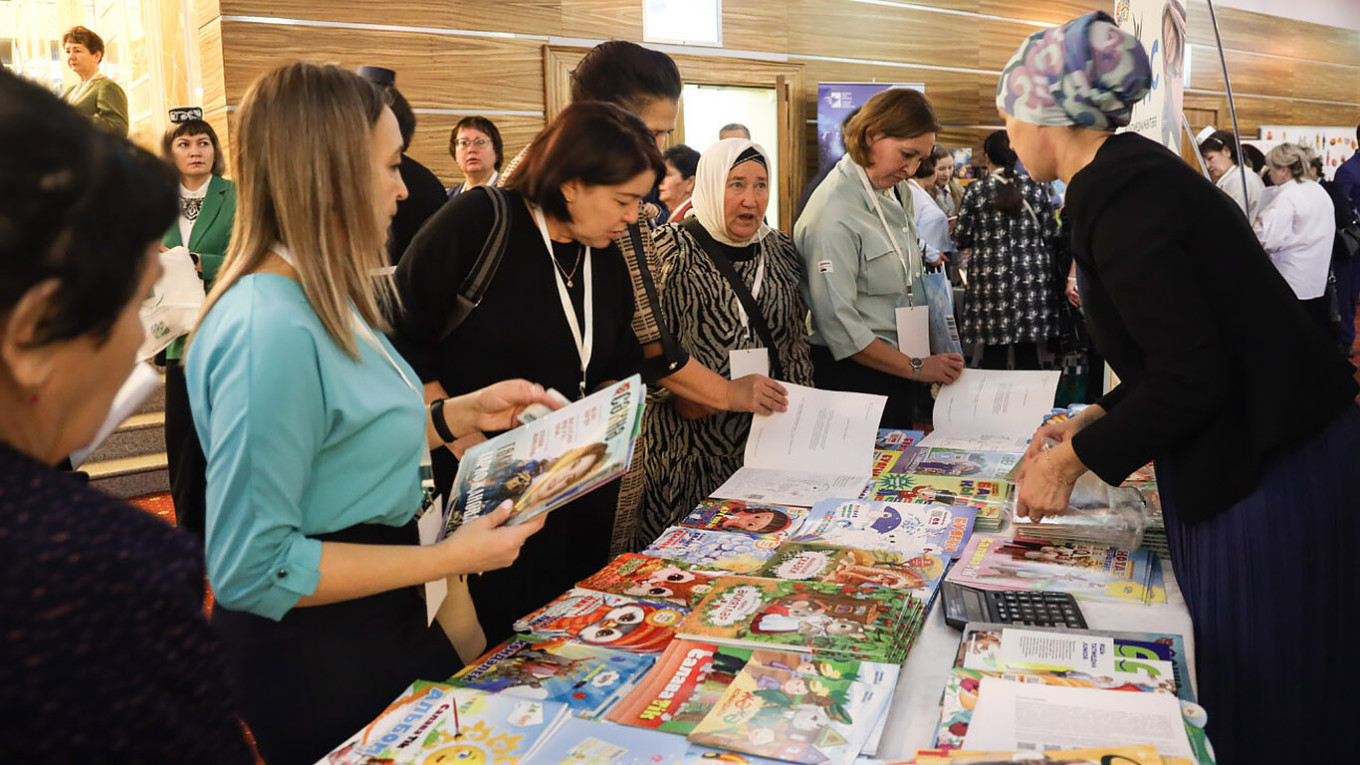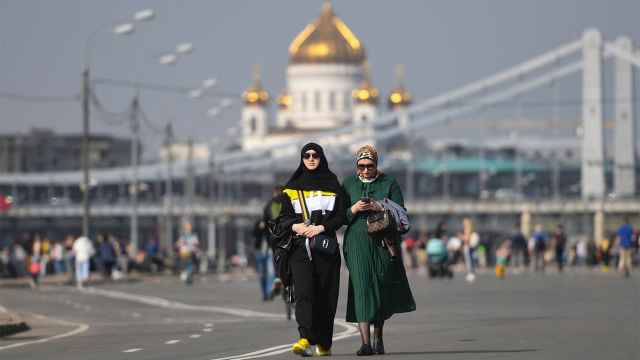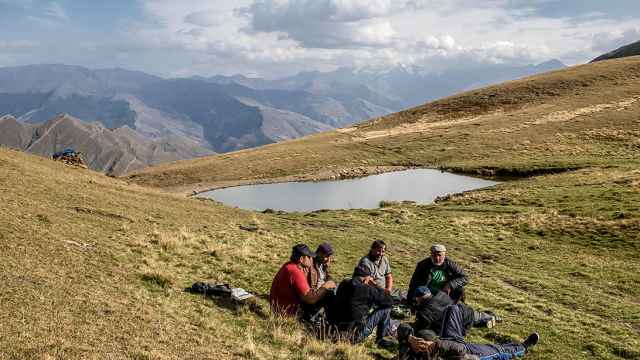Friday marks the 25th annual International Mother Language Day, a holiday established by UNESCO to “underscore the role of languages in promoting inclusion.”
Russia has 155 living and 15 extinct languages native to the country as classified by the Linguistics Institute of the Russian Academy of Science.
While Russian is named as the sole “state-founding” language in the country’s Constitution, more than 30 languages of minoritized Indigenous communities are also recognized as official in Russia’s 21 ethnic republics.
In Dagestan, a North Caucasus republic known for its high linguistic diversity, this applies to 13 of more than 50 languages Indigenous to the region.
On paper, this special legal status allows these Indigenous languages to be used in lawmaking, court proceedings and as the language of school instruction.
But in reality, the number of speakers of most languages of Russia’s republics is on the decline, as they are primarily spoken inside the home.
All of these languages are classified as at least “potentially vulnerable” in UNESCO’s World Atlas of Languages. Some, like Udmurt and Altai, are marked as “definitely endangered.”
Language teachers, activists and parents from Russia’s Indigenous communities who spoke with The Moscow Times attested to the worrying trend of language erasure, pointing to the inaccessibility of Indigenous language classes and schooling in Indigenous mother tongues as the primary reasons for it.
“I don’t speak Russian with my child. From the moment she was born, I have only spoken Bashkir to her,” said Gulnaz, a woman from Bashkortostan who asked to be identified by a pseudonym for safety reasons.
“Why? Because she will learn Russian anyway — it is the language of the environment [that she lives in], the primary language of communication. She doesn’t have a choice not to know it,” she said.
Bashkir, a Turkic language native to the republic, is the fourth most spoken language in Russia. In the 2021 census, less than 1.09 million people identified as speakers of Bashkir — a more than 20% decline compared to 2002.
When Gulnaz came to enroll her child in school in her majority Bashkir village, she discovered that it didn’t offer any teaching in the Bashkir language, leaving two hours per week of Bashkir language classes as the only option for the many Indigenous children.
Like other republics, Bashkortostan’s law on education grants Bashkirs and other minorities whose languages were recognized as state languages by Russia the right to both receive school education in their mother tongue and receive language lessons at school.
Only eight schools in the republic offer “multilingual” instruction, according to local officials, meaning some of the classes they offer might be conducted in the Bashkir language.
Both parents and teachers of the Bashkir language who spoke with The Moscow Times admitted to being too scared to demand Bashkir-language education amid ever-worsening repressions.
“I wouldn’t even insist on having a middle school education in Bashkir, but I think it is important in elementary grades. Many parents speak Bashkir with their children from birth, so starting school in a different language would be an enormous stress for them,” said Gulnaz.
“Here, in our own country, we [Bashkirs] would have to adapt to a different language right from the first day of school,” she added.
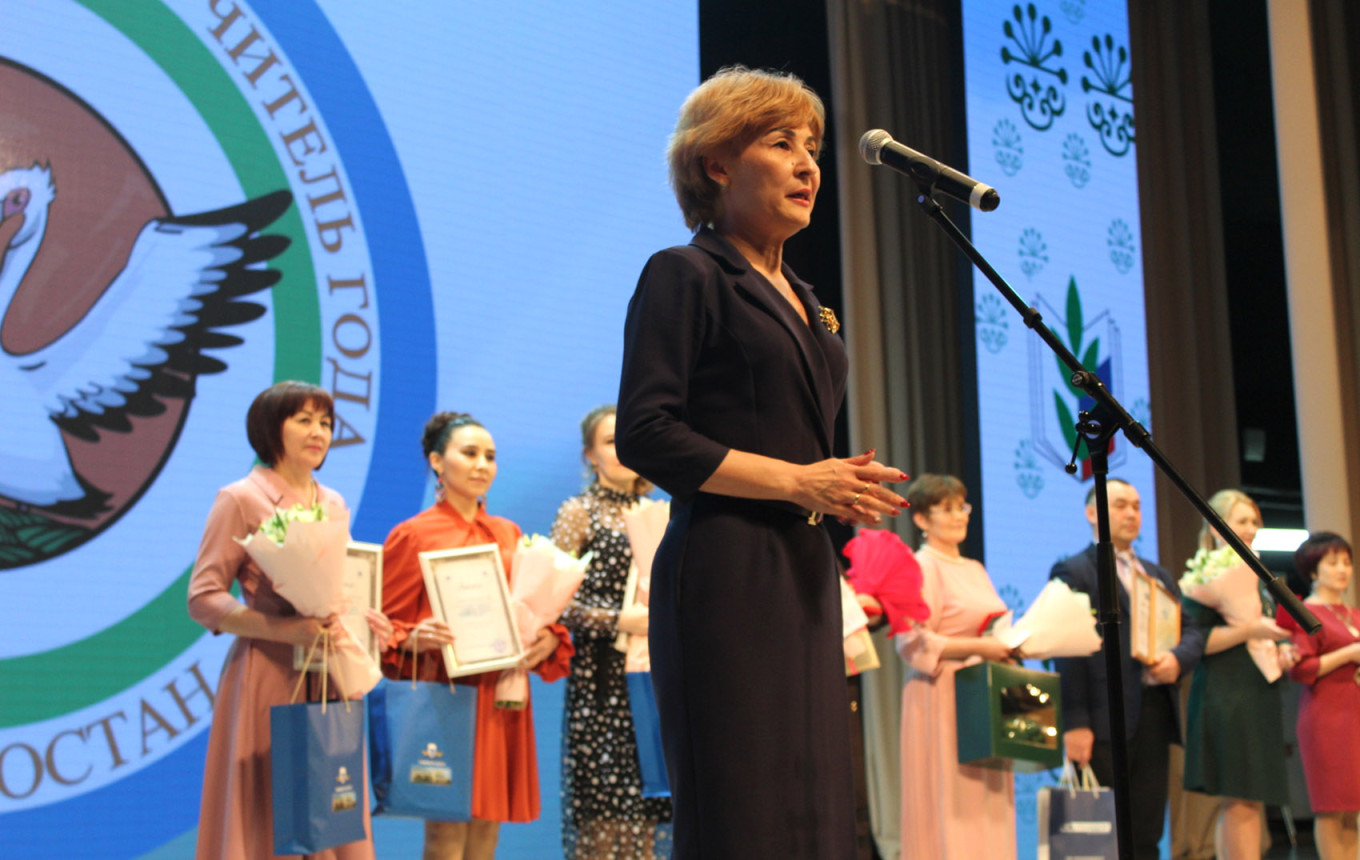
In Russia, Indigenous languages in school-level education have been sidelined in parallel with Vladimir Putin’s rigorous centralization of power.
In 2009, Russia’s Supreme Court ruled that the Unified State Exam, which is required for university admission, can only be completed in the Russian language, scrapping the previously available opportunity to take it in one of the Indigenous languages.
Authorities went further in 2017, scrapping the mandatory teaching of official Indigenous languages in all of Russia’s republics following Putin’s order.
Today, few politicians in Russia’s republics are willing to go against the Kremlin-dictated language policy.
“There are no longer any schools in Tyva where teaching is conducted entirely in the Tyvan language,” said Shuybek-Kuu, an activist from the Mongolia-bordering republic, referring to the Turkic language spoken by less than 253,000 people.
“Authorities in Tyva hardly work to promote the language among the younger generation. Most of the Tyvan-language content on social media, blogs and YouTube videos are created by enthusiasts rather than government institutions,” they added.
The republic of Tatarstan, where top-level officials call for more Tatar-language schools to be opened, is seemingly an exception.
“In Tatarstan…school principals and vice principals…work to persuade parents [to enroll their children for Tatar language classes], explaining the benefits of choosing the Tatar language,” said a former teacher of the Tatar language in Tatarstan’s capital Kazan. “In this regard, the school system still tries to promote Tatar, albeit imperfectly.”
Russia’s law caps the allowed hours of Tatar classes at two per week. While local officials claim that about 10% of children are still schooled in Tatar, experts say the real number is likely much lower.
“From the moment it was announced that the state exam could only be taken in Russian, it became clear that the school education system in Tatar was doomed,” the teacher from Kazan told The Moscow Times, requesting anonymity to speak freely.
“In such a competitive environment, any parent who wants their child to succeed in exams and enter university will choose education in Russian,” they said.
The few schools still offering instruction in Tatar have had to adapt to changing realities, offering a bilingual approach to teaching: conducting most of the lesson in Tatar but introducing terminology in both Tatar and Russian, with an emphasis on the latter.
The number of Tatar speakers in Russia declined by nearly 40% between 2002 and 2021 to slightly more than 3.2 million people.
With fewer opportunities for formal language study, the burden of passing the language to the next generation falls entirely on the family — an imperfect model, according to linguists.
“If we look at the majority of Tatar speakers today, their language knowledge is limited to basic phrases for domestic use,” the teacher from Kazan told The Moscow Times.
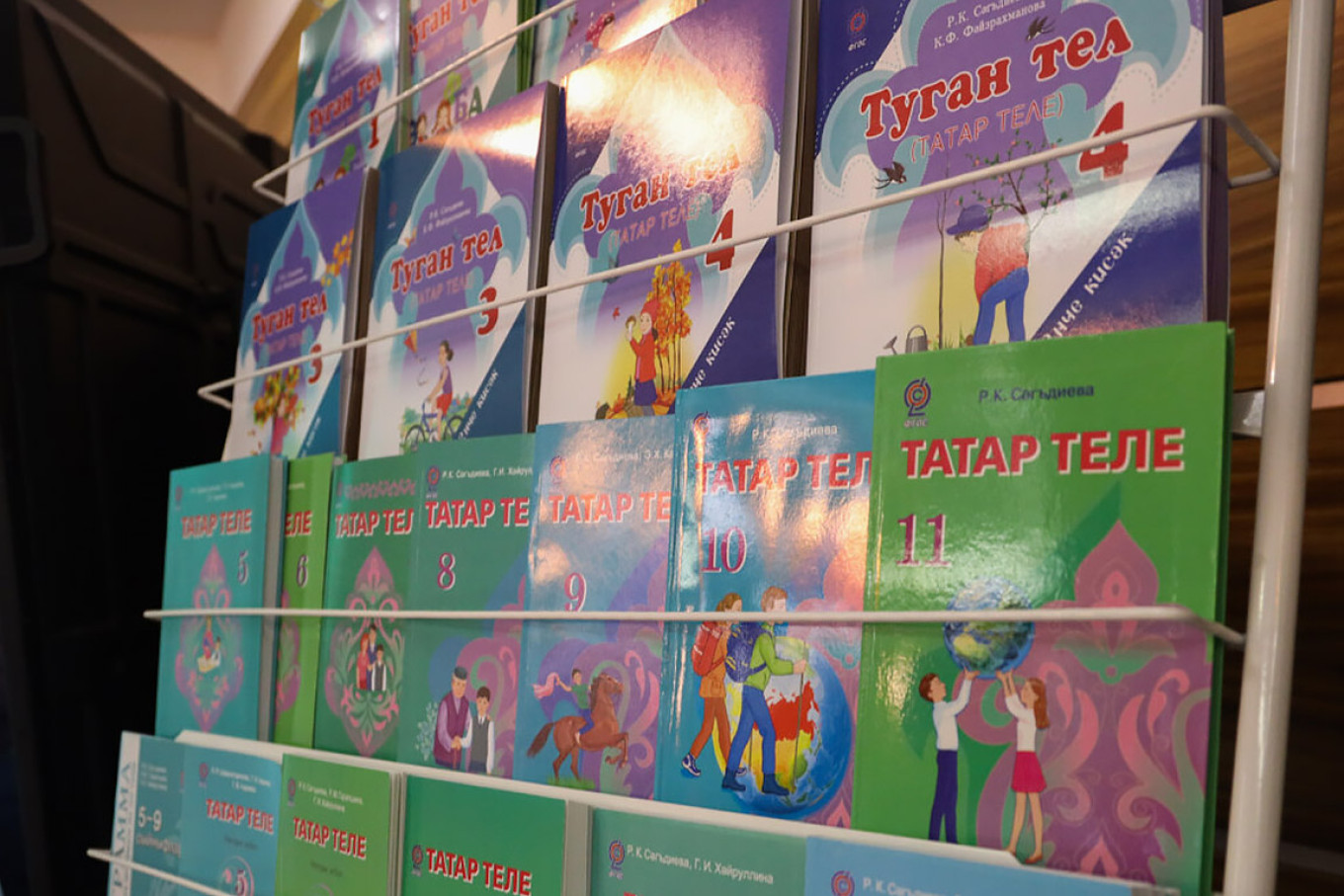
“Tatar language has a history of being used in diplomacy, politics and economics. It has the vocabulary to explain scientific concepts — most parents do not have this level of proficiency. They may not even be able to explain who Gabdulla Tuqay was or why he is significant to Tatar culture. These are gaps that only the education system can fill,” they added, referring to the poet who is hailed as the leading founder of the modern Tatar language.
But while parents in Russia’s republics still have some ways of connecting their children with their linguistic heritage, the task is nearly impossible for those who moved away to other parts of Russia.
“My eldest daughter spoke only Bashkir until she was about three years old. I even had to translate what other kids were saying at the playground for her,” said Rasima, a Bashkir woman living in Moscow who asked to use a pseudonym.
When Rasima’s daughter started kindergarten, she quickly switched to speaking Russian, claiming that speaking her native Bashkir was “uncool” and even “humiliating” — a pattern followed by her younger sibling.
“Now I’m trying to bring the language back. I take them to [private] Bashkir classes…I speak to them in Bashkir, even though they reply in Russian. I believe it’s important to keep speaking Bashkir so that it stays with them. One day, these seeds may grow,” Rasima told The Moscow Times.
“But sometimes, I get really scared when I imagine how my grandchildren might no longer know the Bashkir language at all,” she said. “It is terrifying.”
A Message from The Moscow Times:
Dear readers,
We are facing unprecedented challenges. Russia's Prosecutor General's Office has designated The Moscow Times as an "undesirable" organization, criminalizing our work and putting our staff at risk of prosecution. This follows our earlier unjust labeling as a "foreign agent."
These actions are direct attempts to silence independent journalism in Russia. The authorities claim our work "discredits the decisions of the Russian leadership." We see things differently: we strive to provide accurate, unbiased reporting on Russia.
We, the journalists of The Moscow Times, refuse to be silenced. But to continue our work, we need your help.
Your support, no matter how small, makes a world of difference. If you can, please support us monthly starting from just $2. It's quick to set up, and every contribution makes a significant impact.
By supporting The Moscow Times, you're defending open, independent journalism in the face of repression. Thank you for standing with us.
Remind me later.



